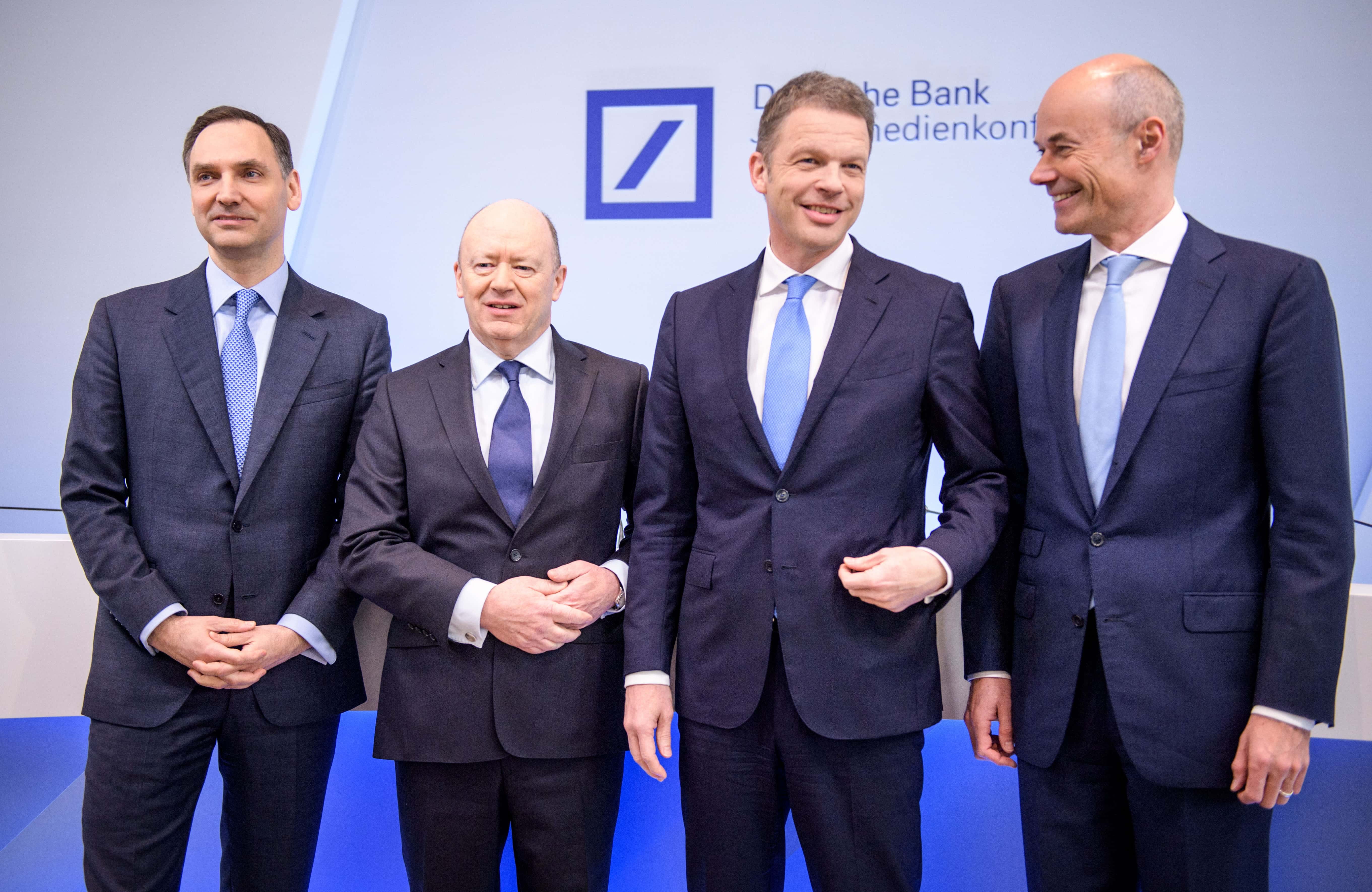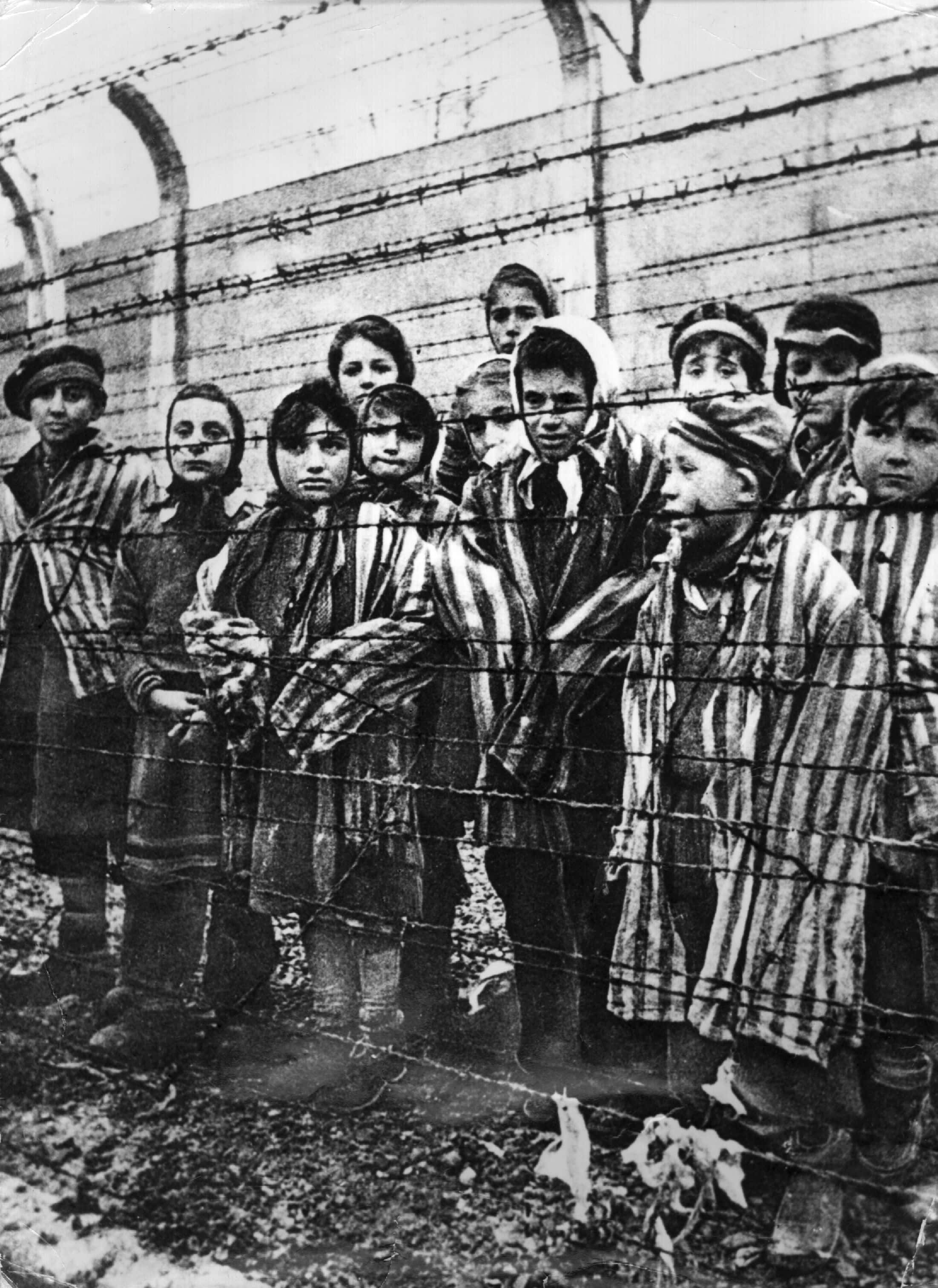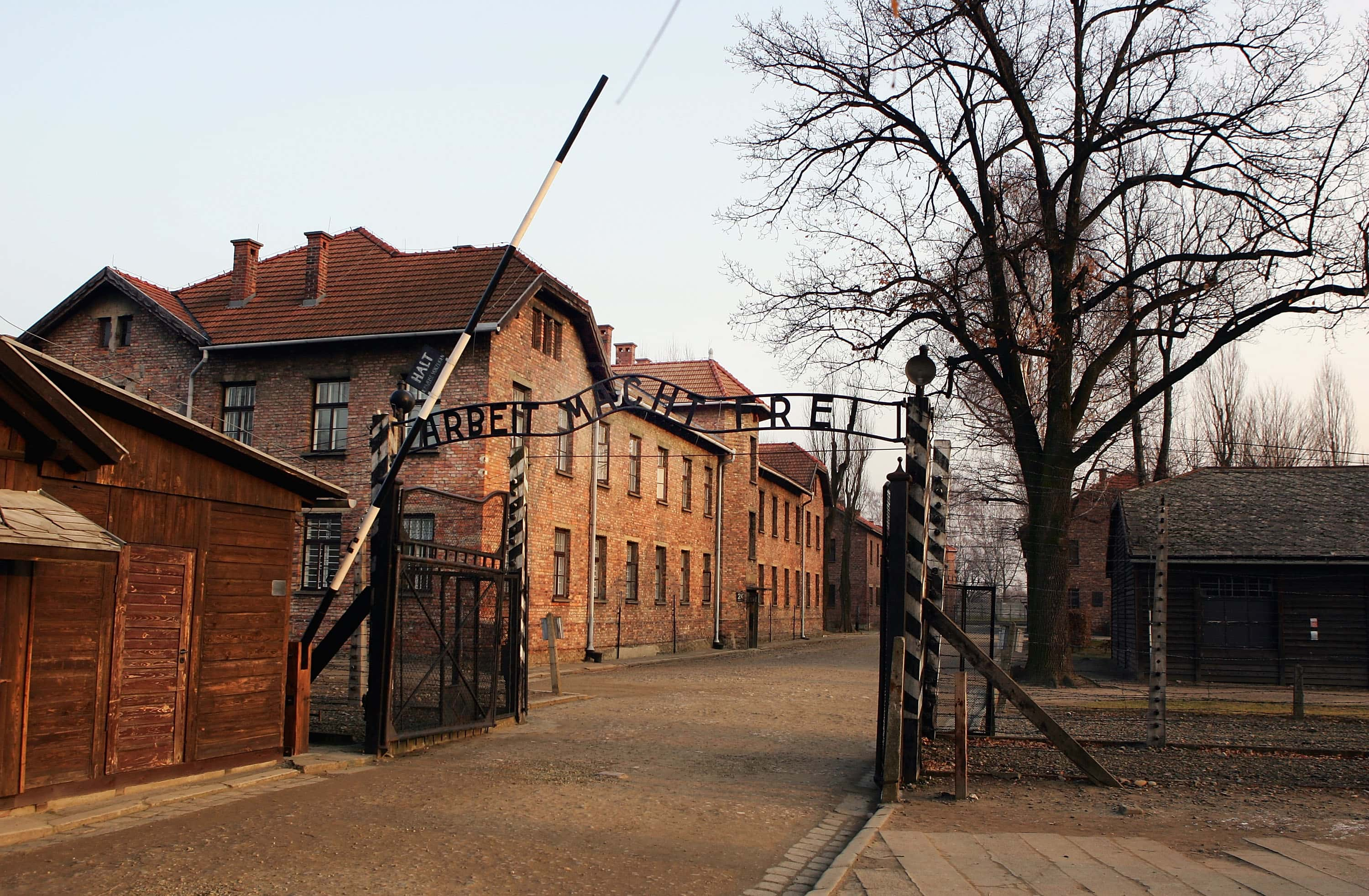Did Deutsche Bank REALLY finance construction of Auschwitz? Company slammed for not exiting Russia

Deutsche Bank faced a major backlash on Friday, March 11, over its ongoing business in Russia. The bank had stated that abandoning clients would go against its values, as other major banks have cut off ties with the country. Some critics claimed Deutsch bank had once financed Nazi concentration camps and so it was no surprise they were continuing business with the "newest Nazi."
Germany's largest bank resisted calls to sever ties with Russia following Vladimir Putin's invasion of Ukraine, saying it needed to support its clients in Russia. This came as major US banks including Goldman Sachs and JPMorgan Chase announced on Thursday, March 10, that they were wrapping up operations in Russia and pressured rivals to follow by example.
RELATED ARTICLES
What is Lumen Technologies? 'Gateway to the Internet' pulls plug on Russia
Russian soldiers who surrendered to Ukraine fear they may be 'shot by own people'
"We are often asked why we are not withdrawing completely from Russia. The answer is that this would go against our values," CEO Christian Sewing said in a memo to Deutsche Bank staff on Thursday. "We have clients who cannot exit Russia overnight." Meanwhile, CFO James von Moltke told CNBC, “We’re there to support our clients. And so, for practical purposes, that isn’t an option that’s available to us. Nor would it be the right thing to do in terms of managing those client relationships and helping them to manage their situation."

The bank was excoriated on social media for not pulling out of Russia, with many alleging it had "bankrolled" the construction of Nazi death camps under Adolf Hitler. "Nobody is shocked by this. Deutsche Bank literally bankrolled the Nazis and laundered Russian money for years," one tweeted. "Same bank that funded the construction of Auschwitz. Of course, Deutsch doesn't want to leave their newest Nazi," another wrote. "@DeutscheBank is not a bank, it’s a Russian mafia organization…Once known as 'a tool of the Nazi'…now a 'tool of the Russian Mafia'!" someone else added. "Deutsche Bank was THE BANK that helped convert, move and hide stolen gold the Nazis took from the Jewish People," another alleged.
Nobody is shocked by this. Deutsche Bank literally bank rolled the Nazi’s and laundered Russian money for years. https://t.co/XHbdxTiYEY
— #TeamSoapWaterWashcloths Erryday💁🏾♀️ (@Kierryk345) March 11, 2022
Same bank that funded construction of Auschwitz.
— B. Louise McMillan (@BLouMcMillan) March 11, 2022
Of course Deutsch doesn't want to leave their newest Nazi.
@DeutscheBank is not a bank, it’s a Russian mafia organization…Once known as “a tool of the Nazi”…now a “tool of the Russian Mafia”! https://t.co/tA9jlPDLAA pic.twitter.com/pU32Nquemq
— Work Hard & Be Nice 😘 🤠⭐️❤️🇺🇦🇺🇦🇺🇦🇺🇦🇺🇦 (@WorkHardBeNice1) March 11, 2022
Deutsche Bank was THE BANK that helped convert, move and hide stolen gold the Nazi's took from the Jewish People.
— OhMyGuasch (@GuaschMy) March 11, 2022
Did Deutsche Bank really finance construction of Auschwitz?
In 1999, Deutsche Bank AG shocked the world by disclosing that it helped to fund the construction of Auschwitz, the Nazi concentration camp under Adolf Hitler. According to the bank's historian, it provided funds for several firms contracted to build the notorious Polish camp, where more than 1.5 million prisoners — mostly Jews — were killed during World War II, the Wall Street Journal reported.

In 1998, the bank had admitted that it had dealt in gold looted from victims of the Nazi regime, but insisted there was no proof that bank officials were aware of the source of the gold. The acknowledgment came as the bank faced an $18 billion lawsuit filed by Holocaust survivors. The Nazi connection was unearthed by an independent historical commission set up by the bank in 1997, which scoured through years of documents and found that the bank's branch in Katowice, Poland, extended credit on one occasion in 1942 to a construction company called W. Riedel & Sohn, Eisenbeton & Hochbau, for 135,670 Reichsmarks.
A copy of the contract revealed by the bank detailed the costs of constructing bridges, railways, ditches, and other transport-related work at the Auschwitz camp that the credit covered. "For all of 1942, the bank extended 400,000 Reichsmarks to the firm," WSJ reported, adding that the research "also showed that in the early part of 1943, the branch extended monthly credit of around five million Reichsmarks to I.G. Farben," which "developed the gas used to kill prisoners at the camp."

Further research found that the Nazi secret police — popularly known as the Gestapo — held multiple accounts with Deutsche Bank branches in Berlin and Hamburg that "contained the proceeds from the sales of property seized from Jews." Manfred Pohl, the director of the Historical Institute of Deutsche Bank, said the evidence indicates that "in all likelihood, the managers of the Katowice branch were aware of where the bank's money was going," although senior managers in Berlin may not have been aware of the purpose of their financing, per WSJ.










